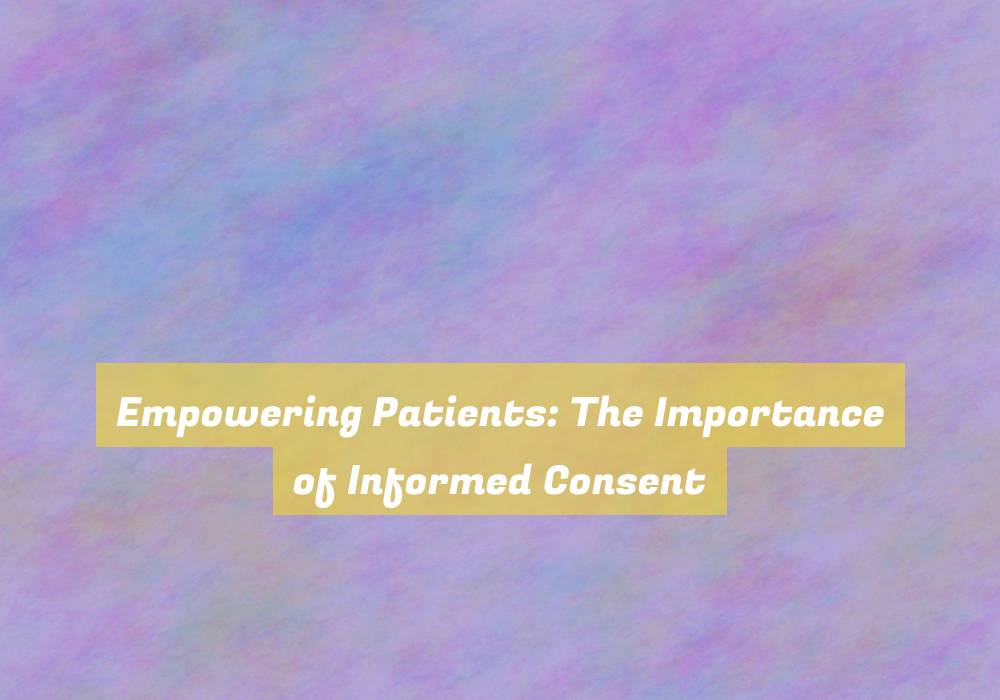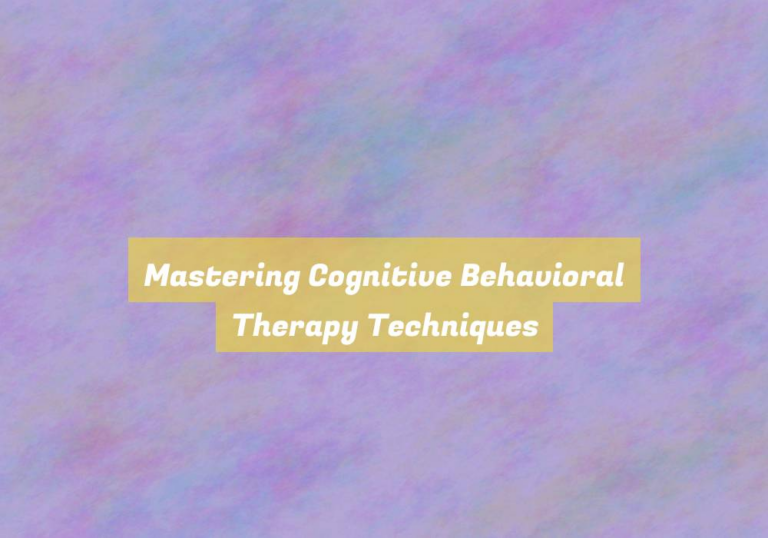Empowering Patients: The Importance of Informed Consent
When it comes to your healthcare, being in the driverG??s seat is crucial. Imagine a scenario where youG??re presented with a treatment plan without fully understanding the potential risks or benefits. This is where informed consent steps in.
ItG??s not just a formality, but a fundamental aspect of patient empowerment and autonomy. The significance of informed consent goes beyond simply signing a piece of paper; itG??s about ensuring that you have the necessary information to make well-informed decisions about your own health.
As we explore this topic, youG??ll gain insight into the ethical, trust-related, and legal dimensions that make informed consent a cornerstone of patient-centered care.
Patient Autonomy and Decision-Making
When making medical decisions, itG??s crucial to empower you to exercise your autonomy and make informed choices about your care. Your active involvement in decision-making is fundamental to the ethical practice of medicine. ItG??s your right to be fully informed about your condition, the proposed treatment, and any potential alternatives or risks. Your healthcare provider should present information in a clear and understandable manner, allowing you to ask questions and seek clarification as needed.
In this process, youG??re encouraged to express your preferences and values, which can significantly influence the decisions made regarding your care. Your unique perspective and personal circumstances are essential factors in determining the most suitable course of action. Empowering you to actively participate in decision-making not only respects your autonomy but also fosters a sense of ownership and responsibility for your health.
Furthermore, understanding that you have the right to accept or decline any recommended treatments is pivotal. Your informed consent should always be sought before proceeding with any medical intervention, ensuring that youG??re fully aware of the potential benefits and risks associated with the proposed course of action.
Ultimately, the goal is for you to feel empowered and confident in the decisions you make about your health.
Ethical Considerations in Informed Consent
As you consider the ethical implications of informed consent, itG??s essential to recognize the pivotal role of patient autonomy and decision-making in the medical decision process.
Ethical considerations in informed consent revolve around the principles of respect for autonomy, beneficence, non-maleficence, and justice.
One of the key ethical considerations is ensuring that patients have the capacity to make informed decisions. This involves the healthcare providerG??s responsibility to provide information in a clear and understandable manner, allowing patients to comprehend the nature of the proposed treatment, its risks, benefits, and alternatives.
Additionally, itG??s crucial to avoid any form of coercion or manipulation when seeking a patientG??s consent. Patients should feel empowered to make decisions that align with their values and preferences, free from external pressure.
Furthermore, the ongoing nature of informed consent should be acknowledged, as patients have the right to withdraw consent at any time.
Respecting the ethical principles within informed consent not only upholds the integrity of the patient-provider relationship but also fosters a healthcare environment built on trust and mutual respect.
Role of Informed Consent in Patient Trust
The establishment of trust in the patient-provider relationship hinges significantly on the thoroughness and transparency of the informed consent process. When you, as a patient, are fully informed about your treatment options, potential risks, and expected outcomes, it builds a foundation of trust with your healthcare provider. Informed consent demonstrates that your provider respects your autonomy and values your input in the decision-making process. This transparency fosters a sense of partnership and mutual respect, which are essential components of a trusting relationship.
Moreover, when you feel empowered to make informed decisions about your healthcare, it enhances your confidence in the medical team. This confidence is rooted in the knowledge that your provider has taken the time to explain the details of your treatment plan and has addressed any concerns or questions you may have had. As a result, youG??re more likely to have trust in the expertise and intentions of your healthcare provider, leading to a stronger and more collaborative patient-provider relationship.
Ultimately, the role of informed consent in patient trust canG??t be overstated, as it forms the basis for a relationship built on respect, transparency, and shared decision-making.
Legal Implications for Healthcare Providers
Establishing trust through informed consent forms the foundation for a healthcare providerG??s legal responsibilities, ensuring that patientsG?? rights are respected and protected throughout the treatment process. By providing clear and comprehensive information about the proposed treatment, its potential risks, benefits, and alternatives, healthcare providers fulfill their legal obligation to obtain informed consent from patients. Failure to do so can lead to legal ramifications, including allegations of negligence or malpractice.
Informed consent serves as a legal safeguard for healthcare providers, offering protection in the event of patient dissatisfaction or disputes. It demonstrates that the healthcare provider has fulfilled their duty to disclose relevant information, enabling patients to make autonomous decisions about their care. Without informed consent, healthcare providers may be vulnerable to legal challenges that could compromise their professional reputation and financial stability.
Additionally, adhering to informed consent protocols is essential for complying with healthcare laws and regulations. Failure to obtain valid informed consent may result in legal penalties, disciplinary actions, and potential lawsuits. Therefore, healthcare providers must prioritize the informed consent process to uphold their legal obligations and mitigate legal risks.
Conclusion
In conclusion, informed consent plays a crucial role in empowering patients to make their own healthcare decisions. By respecting patient autonomy and ensuring they have the necessary information to make informed choices, healthcare providers can build trust and uphold ethical standards.
Additionally, understanding the legal implications of informed consent is essential for healthcare professionals. This knowledge allows them to navigate potential legal issues and protect both themselves and their patients. It also helps ensure that patients are fully aware of their rights and can make decisions without coercion or manipulation.
Ultimately, prioritizing informed consent leads to better patient outcomes and improved relationships between patients and healthcare providers. Patients who feel respected and involved in their own care are more likely to adhere to treatment plans and actively participate in their own healing process. This collaboration between patients and healthcare providers can result in better health outcomes and a more positive healthcare experience for everyone involved.






I appreciate your perspective on informed consent as a fundamental aspect of patient empowerment. It’s interesting to think about how often patients might feel like they’re on the sidelines when it comes to their own healthcare decisions. I’ve had experiences where the terminology used by healthcare professionals felt almost like speaking a different language, which made me question whether I was truly understanding my options.